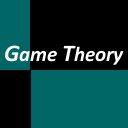Soloman believes that as the game theory gets more sophisticated, we tend to lose sight of the problem rather than solve it. He sees the problem as how to get people to think about business and about themselves in an Aristotelian rather than a neo-Hobbesian (or even a Rawlsian) way, which the game theoretical models simply presuppose.
Soloman discusses seven presuppositions in the first section of his 'Ethics & Excellence' book. They are: rationality and prudence; motivation and self-interest; money and measurement; the anomaly of altruism; good and goals; the open-ended playing field; and the role of the rules. Soloman rejects each presupposition and gives his reasons why.
This essay will discuss two of these presuppositions and either agree or disagree with Soloman and then give reasons as to why. The two presuppositions that will be discussed are money and measurement and the role of the rules.
Money and Measurement
In business, as in most games, we like to keep score.
As one of Soloman's businessman friends told him 'in business you always know how well you are doing. You just have to put your hand in your pocket.' People often think the more money one has, the happier they are. You often hear people say 'if I only had more money, I would be happy.' Frequently the perceived level of success is compared to the size of one's bank account, the location of their house or the amount of cars in the driveway. People seem to perceive money as being happiness.
Soloman says that keeping score, although it is not an essential feature of games, seems to be one of the most durable features of game theory. He thinks that the best way to keep score is to have a dependable point system, a definite unit of worth, which...



Soloman
even though i dont know who this ''soloman'' person is it doesnt hide that fact that this essay was written well and goes into great detail about the ehtnics of business and the thoeries
5 out of 5 people found this comment useful.